All Publications
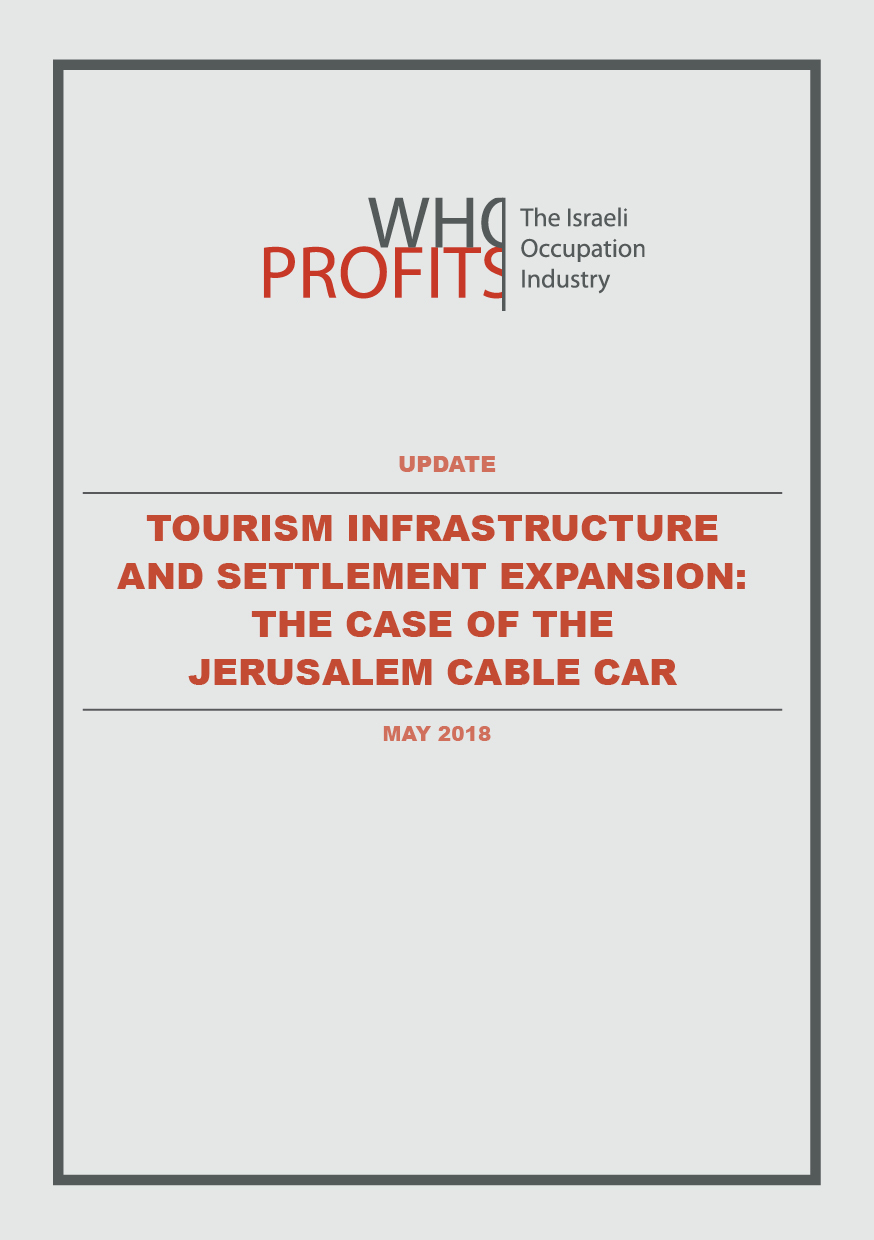
Tourism Infrastructure and Settlement Expansion
In this update, Who Profits provides an overview of the Jerusalem cable car project, highlighting in particular the role of the tourism sector in facilitating Israeli colonial expansion and the involvement of one French corporation, CNA -Cable Neige Amenagement, in the project.
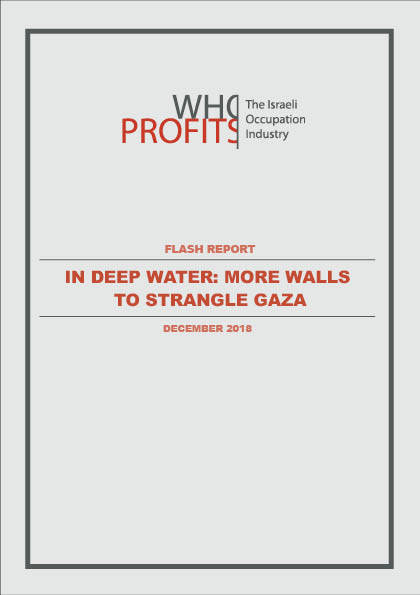
In Deep Water: More Walls to Strangle Gaza
In this flash report, Who Profits investigates recent plans by the Israeli Ministry of Defense to build an additional hi-tech separation wall around the besieged Gaza Strip. The flash report will focus on the role of the private sector, exposing some of the private corporations that amass profits as well as marketable experience from strengthening the Israeli apparatus of control over Gazans.
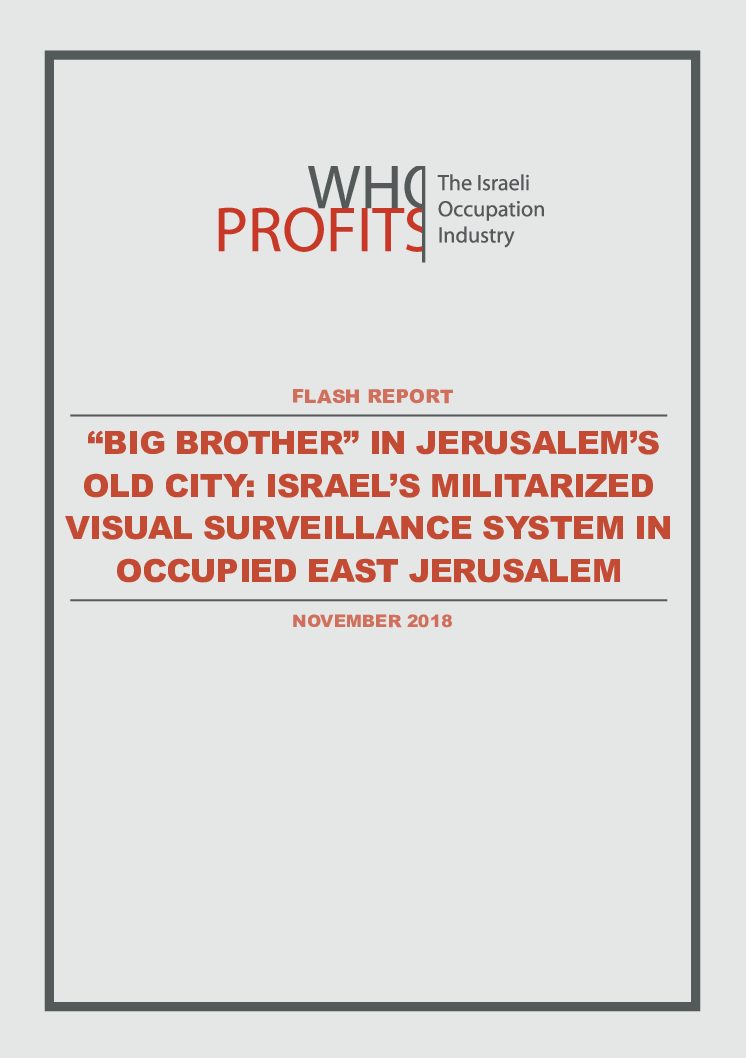
“Big Brother” in Jerusalem’s Old City
In this flash report, Who Profits examines the ‘Mabat 2000’ visual surveillance program implemented in the occupied Old City of Jerusalem by the Israeli state and for-profit. Launched in the year 2000, ‘Mabat 2000’ – an acronym in Hebrew which stands for "technological & surveillance center," and also a word which means “gaze” – is the Israeli police’s most comprehensive visual surveillance project in the Old City, saturating every street and alleyway with Close-Circuit Television (CCTV) cameras. Who Profits documented the involvement of the public Israeli conglomerate, C. Mer Group, in the installment, maintenance and implementation of software used for ‘Mabat 2000’. In addition, the involvement of four corporations in the provision of surveillance hardware was documented: VideoTec, a private Italian company; Dahua Technology, a publicly traded Chinese company; Sony Corporation, a publicly traded Japanese conglomerate, and Evron Systems, a private Israeli company.
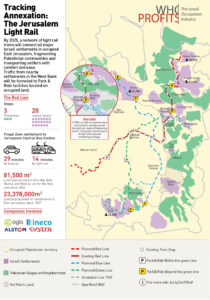
Expanding Annexation
By 2025, a network of light rail trains will connect all major Israeli settlements in occupied East Jerusalem, fragmenting Palestinian communities and transporting settlers with comfort and ease.
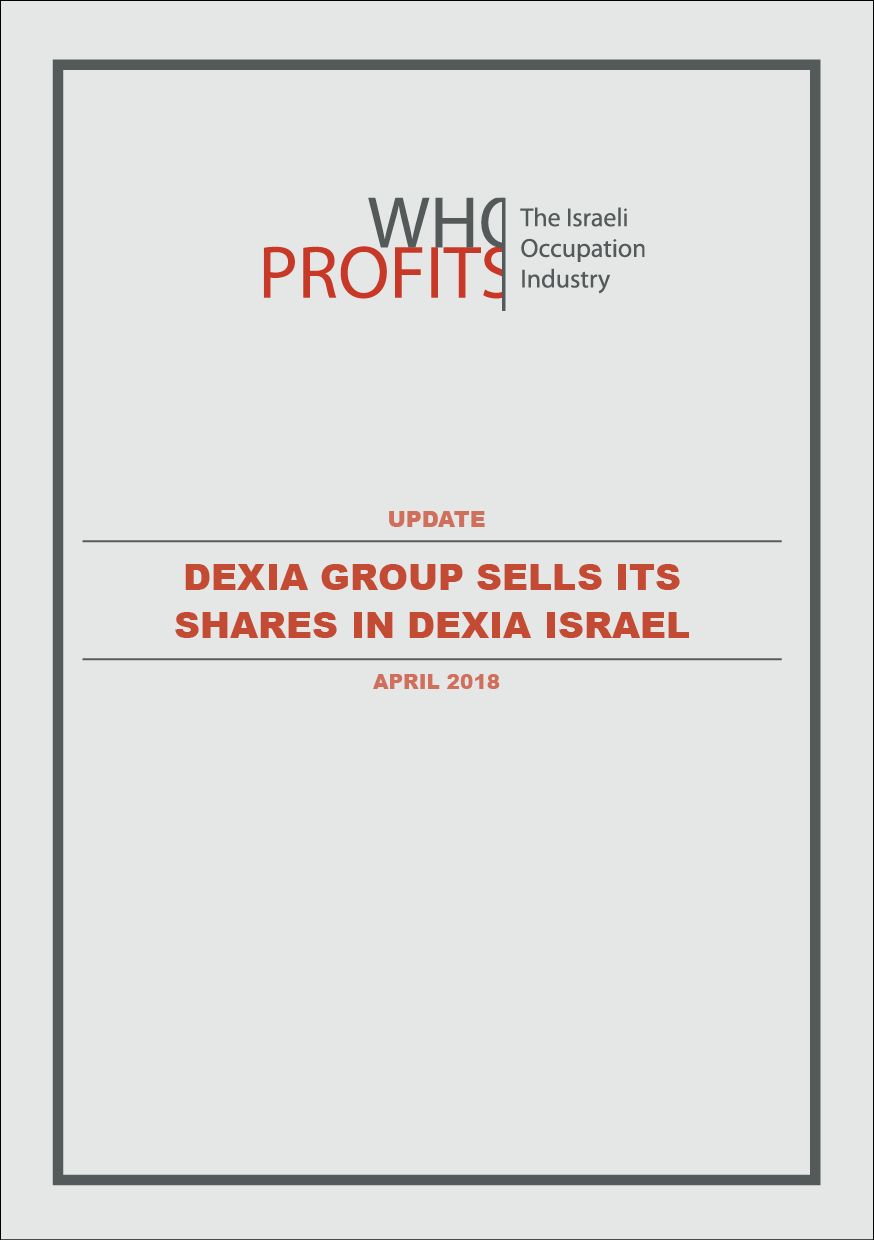
Dexia Group Sells Its Shares in Dexia Israel
On 18 March 2018, Dexia announced the sale of its 58.9% stake in Dexia Israel Bank, an Israeli bank that gives loans and other financial services to municipalities of Israeli settlements in the occupied Palestinian territory.
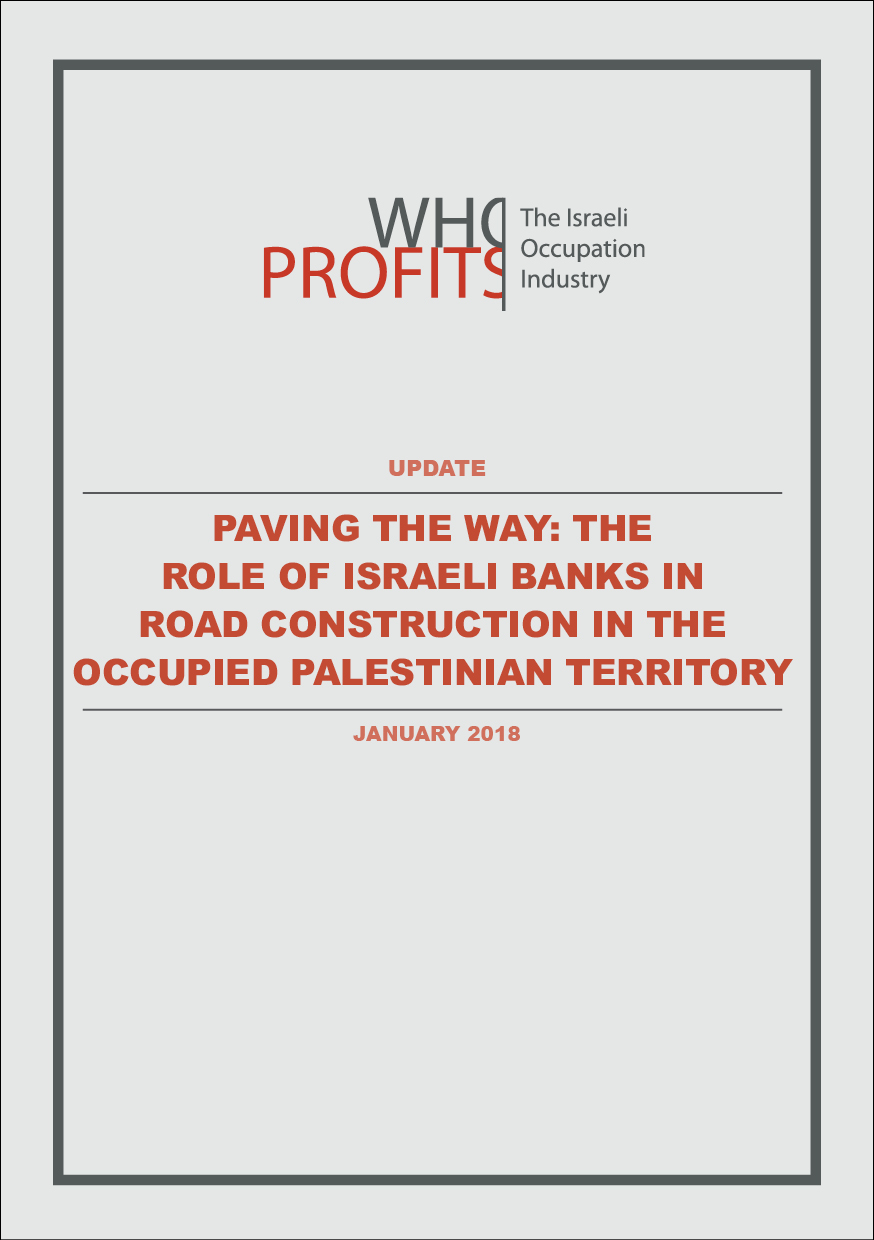
Paving the Way
Road infrastructure projects, like all Israeli construction projects in the occupied Palestinian territory, rely on the financial support of the Israeli Banks. In this update, Who Profits examines a few case studies of infrastructure projects financed by Israeli banks in the occupied West Bank and East Jerusalem.
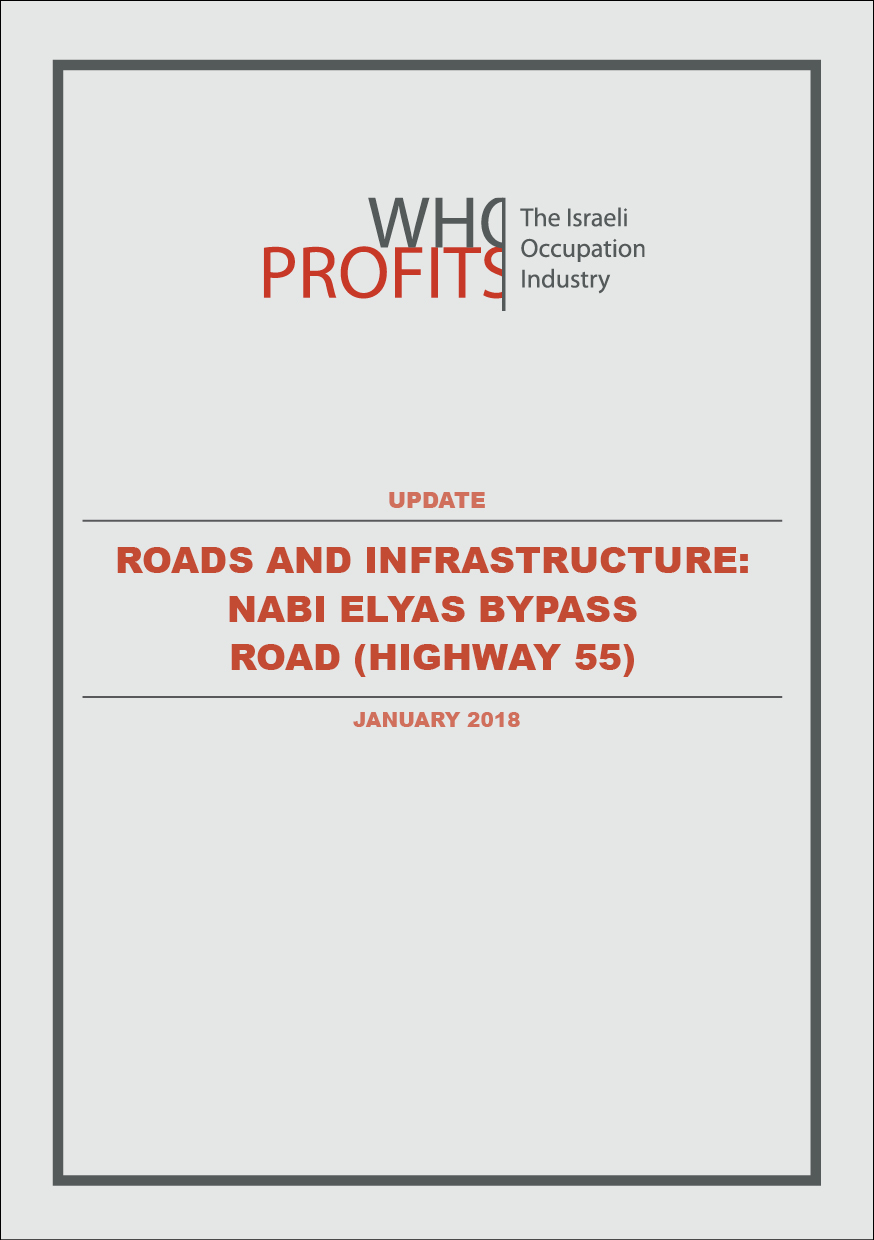
Roads and Infrastructure
In this update, Who Profits exposes some of the international and Israeli corporations involved in the construction of the Nabi Elyas bypass road (Highway 55) in the occupied West Bank. The bypass road, set to open in early 2018, expropriates Palestinian land for a project aimed to benefit an illegal settler population, in gross violation of international law.
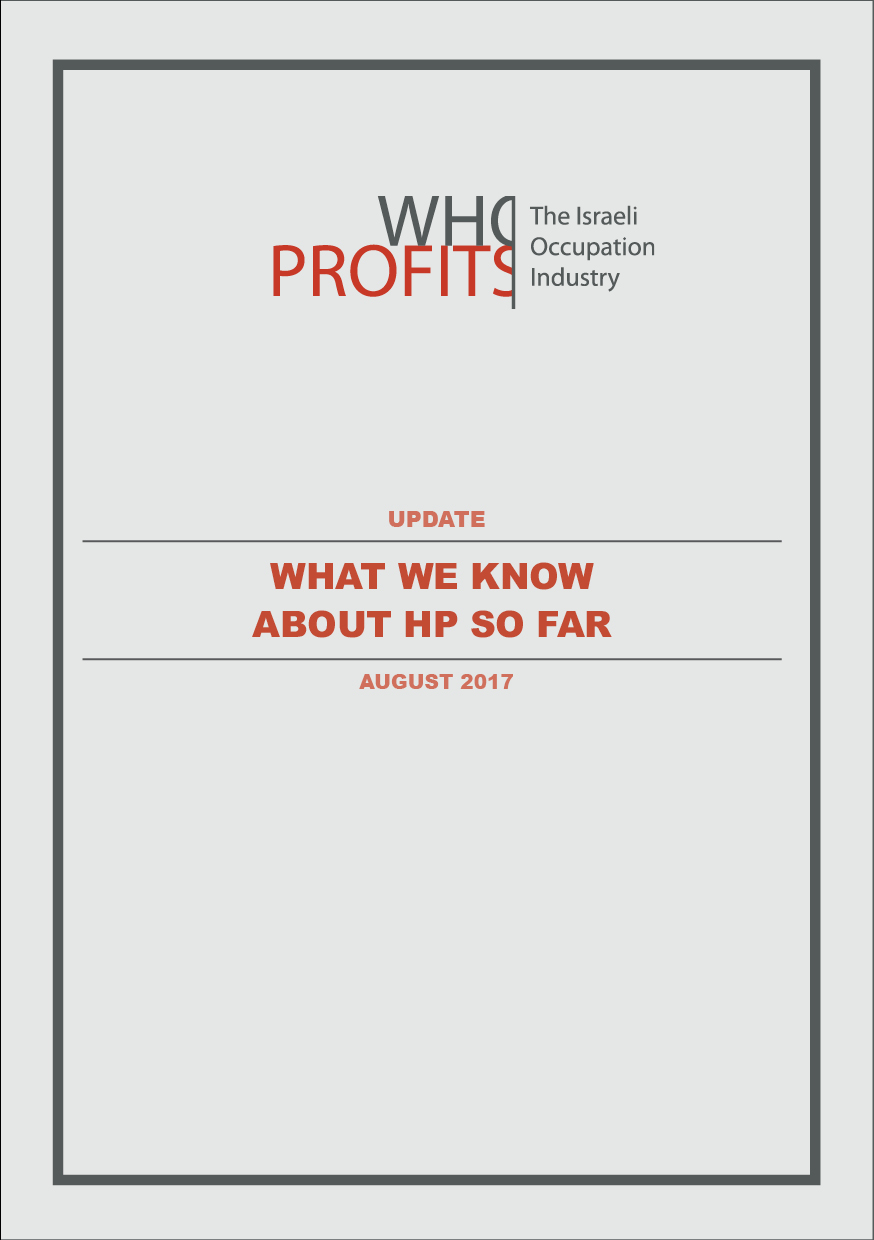
What We Know About HP So Far
In this update, Who Profits traces the occupation-related activities of HP in its new corporate structure. Our findings reveal that although the comany is formally defunct, several of HP’s key involvements continue through the newly formed, publicly traded companies DXC Technology and Hewlett Packard Enterprise (hereinafter: HPE) and their Israeli subsidiaries. This update also contains information about a new involvement in the area of home demolitions and population control.



